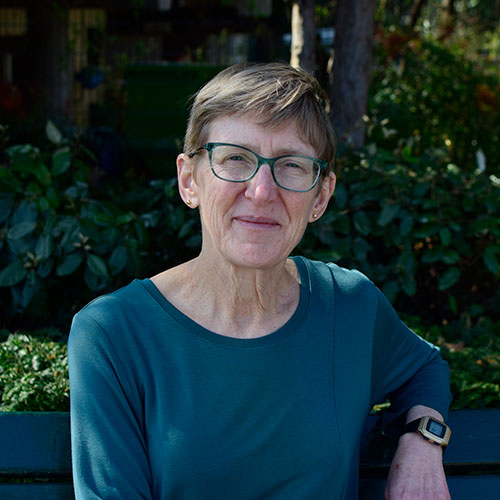
Professor Clayton spoke with National Geographic about climate anxiety and supporting healing

Known for her expertise in climate change and anxiety, Susan Clayton, Whitmore-Williams Professor of Psychology at The College of Wooster, recently commented on how the effects of climate change impact mental health in an article for National Geographic and offered suggestions on how to help cope.
The article noted that extreme weather and rising temperatures has led to increasing mental health cases, citing the latest report from the Intergovernmental Panel on Climate Change (IPCC) in which Clayton served as lead author of the chapter on “Health, Wellbeing, and the Changing Structure of Communities.” It also connects natural disasters like Hurricane Katrina in New Orleans and ongoing environmental changes to grief, depression, and post-traumatic stress as well as “eco-anxiety”—a term Clayton coined in 2011.
In the article, Clayton commented on how higher temperatures increase stress, discomfort, and affect emotions and behavior. “If someone bumps into you, you might be more likely to jump to: ‘that jerk did that on purpose,’” she said in the article.
National Geographic also covered recommendations to support healing from climate trauma. A Climate Change Anxiety Scale Clayton developed in 2020 with Bryan Karazsia, a professor of psychology at Wooster, has been used around the world to measure and study emotional responses to climate change. With other leaders in the field, Clayton authored a report published by the American Psychological Association in 2021 emphasizing growing concerns about the mental health impacts of climate change among health professionals, policymakers, and the public and shared the latest information and guidance in the field.
“People experiencing climate anxiety tend to care about the environment and can benefit from spending time outdoors,” Clayton told National Geographic. “A lot of people experiencing stress from climate change report they’re not always taken seriously,” says Clayton. “Just being validated is important. For somebody to say yes, you’re right to worry about this.”
Photo: Anne D.
Posted in News on March 31, 2023.
Related Posts
Related Areas of Study
Psychology
Do research, work with faculty mentors, and tailor a psychology program to your interests
Major Minor

